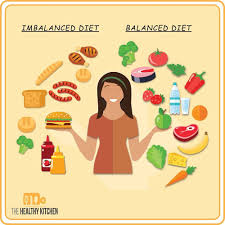Is your favorite outfit not fitting you anymore? Is your tummy making you feel insecure about your weight? Are you tired of gaining weight around your belly?
Belly is one of the notorious areas that easily accumulates fat. And that is why many people face issues when they try to reduce it. Not to mention that excess belly fat not only influences our physical appearance but also has significant health risks—cardiovascular diseases and type II diabetes. It also has a very distinct mental impact in the form of body shame and discomfort.
So it is quite definite that we must start reducing the fat.
But with a busy lifestyle, how can we start an intense workout?
Worry not, because you can focus on reducing belly fat at home naturally.
In this step-by-step guide, we will take you through all the elements that are essential for helping you to lose belly fat.
The things we will focus on are as follows:
-
What is Belly Fat?
-
What are the factors causing Belly fat?
-
Things you should avoid while losing belly fat.
-
Low-Calorie Foods to Reduce Belly Fat.
-
Exercises at home.
-
Few Home Remedial Tips.
-
Conclusion
So, let us take a look at this comprehensive guide.
What is Belly Fat?
As we all know, belly fat or abdominal fat refers to the fat stored around the abdominal region. It normally appears like a pot and is often called a muffin top. Belly fats are of two types, namely:
Subcutaneous Fat:
This is the fat stored just under the skin. It is the pinchable fat that lies on top of the abdominal muscles.
Visceral Fat:
This is the fat stored around the internal organs in the abdominal cavity. Visceral fat is more dangerous as it is associated with various health problems, including cardiovascular disease, type 2 diabetes, and metabolic syndrome.
What are the Factors Causing Belly Fat?
Having a Unbalanced and Poor Diet: 
It is often assumed that if you don’t have food you don’t become fat. It is a wrong misconception that not consuming a properly balanced diet doesn’t make you fat. And if you consume high amounts of sugary foods, refined carbohydrates, and unhealthy fats can lead to belly fat gain.
You face hormonal imbalance.
Most of us gain a lot of weight during our adolescence. Recently, children have been gaining weight more than their previous generations because of these hormonal imbalances.
You Lack Exercise:
A sedentary lifestyle with minimal physical activity makes you lethargic and lazy. So much so that you don’t work out or even go out often. This leads to the accumulation of fats without burning any calories, hence increasing your tummy size.
Poor Sleep Schedule:
Are you having Insomnia? Maybe that is also the reason why you have gained weight around your tummy. Insufficient sleep can disrupt hormonal balance and lead to weight gain, including belly fat.
You have to deal with a lot of Stress:
Are you the type of person who is always stressed at work? This might cost you your health more than you had contemplated. Yes, having high levels of the stress hormone, cortisol is linked to increased abdominal fat storage. This is how stress management also becomes important.
Genetics:
If you have a line family that is quite healthy then these genetic factors can influence body fat distribution, including the tendency to store fat in the abdominal area.
Things you should avoid while losing belly fat.
Sugary Foods and Drinks:
Avoid sugary sodas, candy, and other sweets contribute to belly fat.
Refined Carbs:
Limit white bread, pasta, and pastry intake that can spike blood sugar levels and promote fat storage.
Trans Fats:
Try not to consume more trans-fatty foods, such as processed foods and some portions of margarine, that elevate the quantity of fat in the abdominal cavity.
Alcohol:
Lessen your consumption of alcohol as it causes weight increase and has a boosting effect on the deposition of fat in the belly.
Processed Foods:
Avoid or reduce foods that are processed and pre-packaged; this is so because such foods are high in poor fats, addition of sugar, and sodium overload in the system.
Stress Management:
Avoid high-stress levels or have a good stress management technique in order to prevent excessive fat storage due to cortisol.
Low-Calorie Foods — as Effective Belly Fat Burner
Leafy Greens:
Low-calorie, high-fiber foods such as spinach, kale, or any other leafy green will make you feel fuller.
Berries:
Strawberries, blueberries, and raspberries are low in calories and high in antioxidants and fiber.
Lean Proteins:
Chicken and fish are excellent sources of protein with fewer calories.
Vegetables:
Broccoli, cauliflower, and capsicum are low-calorie and nutrient-dense.
Whole Grains:
Quinoa, brown rice, and oats provide fiber and essential nutrients.
Legumes:
Beans, lentils, and chickpeas are high in protein and fiber, promoting satiety.
Nuts and Seeds:
Almonds, chia seeds, and flaxseeds are healthy fat sources in moderation.
Exercises at Home
Cardiovascular Exercises:
Jumping Jacks: Great for raising heart rate and burning calories.
Burpees: Full-body exercise that gets the metabolism going.
High Knees: This is an effective exercise for belly fat loss and improving cardiovascular fitness.
Strength Training:
Planks: These make the core muscles strong.
Crunches: These target the abdominal muscles.
Leg Raises: These are much more effective for lower abdominal muscles.
Push-Ups: They engage multiple muscle groups together, including the core
Few Home Remedial Tips
Green Tea: Drinking green tea can boost metabolism and aid in fat loss.
Warm water with lemon and honey: Starting your day with lemon water can help with digestion and hydration.
Apple Cider Vinegar: Consuming diluted apple cider vinegar can help with fat loss and improve metabolism.
Ginger Tea: Ginger is anti-inflammatory and can be taken for digestion purposes and to help through the process of fat loss.
Cinnamon: It will balance out the level of your blood sugar, hence decreasing the cravings for sweet things.
Proper Hydration: Drink lots of glasses of water to help with digestion and boost your metabolic rate throughout the day.
Have a Regular Sleeping Pattern: Take qualitative 7-9 hours of sleep each night. Having enough sleep will ensure that your body maintains hormonal balance.
Conclusion
It then becomes essential to lose belly fat, which not only helps you strengthen your body but works magically toward a flatter stomach at home. One can achieve it with proper nourishment and diet including with exercises. However, if things work out, then consult a dietician regarding the same.


